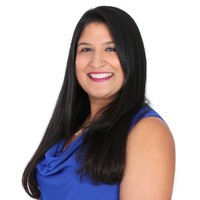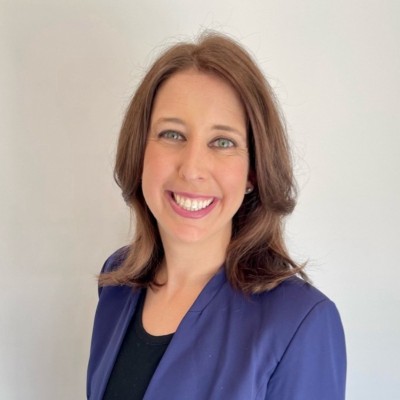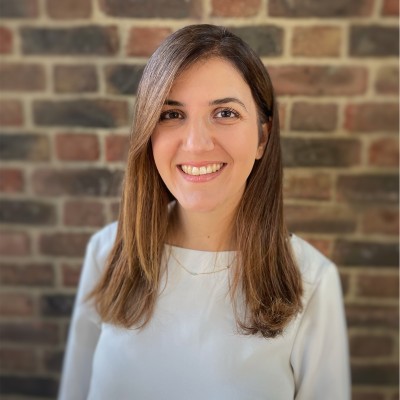Episode 59: Lena Chudasama on the Value of Interpersonal Communication Skills for Sales Enablement
3.5K Views | 24 Min Read
Shawnna Sumaoang: Hi and welcome to the Sales Enablement PRO podcast. I am Shawnna Sumaoang. Sales enablement is a constantly evolving space and we’re here to help professionals stay up to date on the latest trends and best practices so they can be more effective in their jobs.
I’m excited to have Lena Chudasama. Join us today. Lena, I’d love for you to just introduce yourself, your title, and your organization.
Lena Chudasama: Sure. Hi. Thank you for having me. My name is Lena Chudasama and I work at Taboola. My role is a sales enablement lead for EMEA, so the European, Middle East region. I’ve been at Taboola for about six years and I’ve been in this particular role for around one year so far.
SS: Well, I’m so glad to have you join our podcast today. you had mentioned that one of your main responsibilities at your organization is the design and implementation of onboarding programs for sales and account management. Now, when designing an onboarding curriculum, where do you start and what are some of the key things you need to consider in the early stages to ensure success?
LC: Absolutely. So, our sales enablement team only started really a year ago, and so we were starting from scratch with all of these different areas. With onboarding specifically, the important thing is to get buy-in at the beginning from all different parts of the organization. I think that having a VP or a senior executive who really supports what you’re doing is key to making sure that this is a success. If they think it’s important, they’ll be able to kind of give that message from the top down as well as on the ground when we send out trainings. And we’re really lucky that our SVP of sales is really, really behind the training. He finds it really important and he pushes for everyone to complete their training on time, which is great.
For onboarding specifically, our company is global, so we are across EMEA, APAC, and the Americas, which means that we have a lot of people starting in different countries and they’re looking after a variety of markets. So, in order to make sure that we have coverage of all of those markets and that everyone’s perspectives are heard, what we did was built a steering committee, which was basically looking at the different roles that we have – we kind of have four major roles, so we have a media side and publisher side of our business, and each of those has got salespeople and account managers. So, that gives us four kind of key areas. We spoke to people in each of those teams from every region, and we ended up with 16 people on our steering committee, which meant that we had a really good range of opinions. We began with picking four of those people, one from each region slash each team to be our track captains. So, they were all kind of go-to people who were the leaders and really passionate about training as well. We knew that they’d give us really good advice.
The first thing we did was sit with those track captains and think about the flow of a new person joining and what they would want to learn about and what they need to learn about. And we really break this down into separate areas. So, some of it was more to do with product knowledge, some was Taboola knowledge, some were systems and tools.
And then we took a long time, a couple of hours, to sit down and list all of these different sessions that we might have.
Once we had those done, we then thought about who the best person would be to create the content. So, we had some specialists in different areas that we asked to get involved, some more senior account managers and salespeople who we knew would be good to share and teach them knowledge that they already have. So, once we pick those people, we could assign the content to them. We kind of gave instructions on how to create effective content, and we sent that out to all those people and ask them to create it. And bit by bit, we’ve got all the sessions back to us and we’re able to put them in an LMS and basically create a program for different programs for each of the different tracks or the different roles that people have when they start Taboola.
SS: Now, you mentioned that your onboarding programs support both sales representatives as well as account management, and they often require slightly different skills and they obviously require different learning modules. How do you account for these different roles and learning needs within your curriculum?
LC: Yes. So, as I mentioned, we do have different tracks of training. This is sort of the first iteration, and now that we’ve been running our team for about a year, we are able to get a bit deeper and kind of start planning the next phase. Within sales, we have other roles like SDR, sales development representatives, we have sales planners, and in some markets, we have mid-market teams and SMB teams, which are different to enterprise.
So, what we are looking to do now is develop programs specifically for those different roles. What we’re going to do is speak to the managers and team leaders in those teams and show them what we already have and figure out what they still need, because a lot of that is still relevant, but there are a few sessions that they won’t really need. For example, SMB wouldn’t run quarterly business reviews like the enterprise team would, so we can take that training out. But we might put in something about speaking to clients on the phone and how that’s different than doing it in person, for example. So, we’re going to do deep dives with all of those managers to make sure that the trainings we create are really effective.
We are also looking to think about the different levels, as well, of people coming into the organization. Some people are completely new to sales, so they need to start with the fundamentals. And some people have been in sales for maybe 20 years, so they might not need to know everything in so much detail. That’s another area that we’re looking to tackle, as well as looking at training for managers versus individual contributors. Managers might need to know more about the higher-level things and not so much about the details of processes, whereas individual contributors need to know all of the detail because that’s going to be their day-to-day.
So, these are the areas that we’re kind of looking at now this year to tackle, to make our program even more specialized for each of these different roles, essentially. That’s going to be one area that we’re focusing on. And in terms of learning needs, we have a variety of training that we produce. A lot of the initial training is done via e-learning on our LMS. And that’s really useful because it’s easy to track. It’s easy to share. You can show visuals and use videos, you can put in quizzes, which helps different learning styles already. But we do throw in a few face-to-face sessions as well because some things are just easier to show face-to-face and it helps the new person to meet more people in the organization as well. So, those are the different ways that we try to tackle different learning needs and learning styles as well.
SS: Now, obviously learning goes beyond just kind of that initial onboarding. So, I would love to understand from your perspective, what are some of the key components of a cohesive readiness program?
LC: Yeah, this might sound obvious, but I think communication is key in terms of a readiness program. There’s a lot of different teams who want to speak to the sales organization, and our job as sales enablement is to make sure that they get the right messages, but that they’re not bombarded and they don’t have too much noise. I think communication is really important. That’s another thing that we’ve been tackling and we’re still trying to tackle is making sure that all these different teams go through us to send their message.
For example, before our team existed, the product team, the marketing team, the HR team would all send different emails on different cadences each week or each month to the org, They would have so many emails to read that it’s likely they’d probably just delete some of them to be honest. So, one thing we want to do is get a newsletter, which is a weekly newsletter to the org where we have different sections for all the different teams to put their message in and we say to the sales organization, we just have this one place that you can go and you’ll find everything you need to know. And we make it trackable to make sure that people are actually reading it, as well. I think that that’s one really important area is the communication.
Another area that is important as well is sticking to deadlines. Alongside the newsletter, we have some other trainings that we run every month. So, we have some that are face-to-face and some that are online. And obviously when people maybe miss a session for any reason, they might be behind, and they might miss some important information. It’s important for people to stick to those deadlines and either attend and if they’re not able to attend live for any reason, to watch the replay or read the follow-up. It’s easy to say that people need to stick to deadlines because obviously their main job is to sell or to upsell or to manage accounts. This is kind of an extra thing that’s been added on the end.
It’s also about changing behaviors and making training kind of part and parcel of their day-to-day roles and realizing that if they don’t keep up with training, they’re not going to have all the knowledge they need to do their role. It’s quite a big, behavioral change that we’re trying to make as well, to help people to understand that sales enablement is here to support them. And it’s not supposed to be extra work and like, “Oh, I’ve got to go and do that e-learning. I don’t have time.” It’s a bigger challenge, but I think once we have that full change in mindset that people find this to be really important, then that’s what makes the program really effective, because people want to watch the training, want to attend, and look forward to it even. That’s the ultimate goal, I think.
SS: What are some of the ways in which you’re actually supporting some of this ongoing learning at Taboola?
LC: So, we have a few different ways that we support learning. I already mentioned that we have lots of online, so lots of e-learnings. And what I’ve also done is collected a few external trainings that could be useful for people to access. For example, a lot of people last year asked me about Excel training. They just wanted to know more about it and how to use Excel effectively in their roles. And people have asked about other kind of general skills like Google Docs, Google Sheets, things like that. So, what I did was spent a bit of time going through different free courses that are available online via different learning platforms. And I found a few of them. I collected them all together and put them on our central intranet in one place. And then I let everyone know that I’ve collected these. If you want to do this and do a self-paced learning, then feel free to go ahead and enroll yourself. That’s one way of enabling people to kind of take charge of their own learning.
Another way to support learning is through lunch and learns. I’ve actually been doing this for quite a while, probably about four years now. This was much before I was in sales enablement, but I’ve always had a passion for training. So, I set up lunch and learns in the office where once a month I would just kind of give anyone the opportunity to come and share about their team. It started off being about people sharing maybe a case study or some interesting knowledge or something about how to effectively optimize your website, how performance clients work, and what the marketing team does.
It was just kind of a way to showcase what your team does so that we could all learn a bit more about each other and how we work with clients or work with internal clients. And then this sort of developed over time and became an opportunity for us to invite maybe clients to come in and talk about their partnership with Taboola from their perspective, or other vendors may be coming in and talking about how they work with Taboola. It just sort of became a way for people to learn about something outside of their immediate role that was teaching them a bit more about the industry and about other players that they might be interested in learning about. So that’s been really effective, and we’ve kind of continued that for quite a while. Other offices have picked up on that as well after seeing it being done here.
I would say one other thing as well is, we have a few initiatives within the office just to help build the culture and make sure that people are interacting, not just on a work level, but I’m doing other things that are a little bit more fun. One thing that people have asked me about a lot is developing skills around presentation. It’s always presentation skills, negotiation skills. That’s what everyone wants to know. What I’d like to do is give people a platform to practice their presentation skills because it’s such a good transferable skill to have. It’s always going to help you.
So, I put forward an idea that we’re kind of working on right now in the office called “Showcase Your Side Hustle”. I know that a lot of people at work have some sort of a side hustle, whether it’s their own small business or a hobby or some way that they’re helping the community. And I thought it’d be really nice to have a platform for everyone to come together and share what they’re doing because you might find that there are other people in the office who might have a similar interest and might be able to help you or get involved. Also, that gives people a chance to practice their presentation skills, because we’ll give them maybe three to five minutes to talk about their side hustle and then maybe take some questions, maybe have a little panel. It’s a fun way for people to basically practice the softer skills, which are always important in sales.
SS: And that segues actually really nicely because we noticed with your background that you have some involvement with Toastmasters. How have you leveraged that experience to deliver your enablement initiatives in a really compelling manner?
LC: Absolutely. So, I’ve been a member of Toastmasters for about four years or so now, maybe a bit over four years, and I love it. I’d really recommend it to anyone who is even a little bit nervous about speaking in public. It really helps you develop your confidence. I’d say I’ve learned quite a lot from being at Toastmasters. I’ve been there sort of as a member, but I’ve also been in the committee. So, I’ve had a few different roles. I was the president one year. I was VP of PR, so basically looking after the public relations and marketing of the club, and now I’m the vice president of mentoring, so creating a mentoring program within the club. All of these roles have given me slightly different skills that I think have been useful. And it’s kind of brought me up to this point where I feel really ready to be the sales enablement lead because I’ve got all of these different skills.
I’ll give you a few examples. So firstly, one thing that we practice a lot in Toastmasters is just speaking off the cuff or impromptu speaking. You’re doing an activity where somebody will ask you a question. You have to come up to the stage and you have one to two minutes to give an answer, and you’ve literally just had the question. I think that that’s really useful and transferable for most work situations, to be honest. You never know when your manager might come and just ask you a question. You need to have an answer straight away. In sales enablement, if you’re running a training session, you need to be able to interact with people.
Someone might ask you a question and you’re not quite sure of the answer on the spot. You might be able to quickly come up with something or have a good way to kind of say to them, “I’ll come back to you on that”, and be able to say it with confidence instead of being nervous or shy about what your answer’s going to be.
It often happens as well that you might be in a meeting and somebody might suddenly say, “Oh, Lena, can you just talk about this?” I mean, I must say my manager does this sometimes. If we’re in a meeting together and a question comes up, he’ll say, “Oh, Lena, do you want to answer that?” I feel completely comfortable doing that because of the practice that I’ve had at Toastmasters. It’s a very safe environment to be able to practice these skills. So, one big skill I’ve learned is impromptu speaking.
Another skill would be around leadership. I mentioned I’ve had some committee roles, and I was the president at one point, which basically involves managing the committee and managing the club overall. It was a taster of a role of managing people, which is always useful to have. It’s also a lot of stakeholder management because you’re looking after the committee, you’re looking after all of your members. You also need to keep relationships strong with the people who hire out the hall to us, for example, to make sure that we always have somewhere and things like that.
Learning that sort of in Toastmasters helped me now. I didn’t realize before I started this role, but it’s very much about stakeholder management and looking after everyone that you’re training, managing up, managing down, working with all these different teams that want to communicate to the org. And they need to do it through us. I’d say stakeholder management is really important just in keeping the sales enablement message clear and making sure it gets through to the right people.
A key part of Toastmasters is that everything gets evaluated. So, no matter if it was a prepared speech, an impromptu speech, whether you’re the Toastmaster or doing a kind of a helper role, everything is evaluated. Over time, I’ve been improving my skills of evaluation and learning how to evaluate in a constructive way without being mean at all, but being able to give a good bit of feedback or a good area of improvement, but saying it in a way that makes the person feel good.
I think this is a really important skill to bring across as well. Sometimes we have people giving us content that they want to send out to the field, but it’s not always great content or it’s too long or it feels a bit boring and the audience are just going to want to skip past it. So, we have to be able to give sensitive feedback to people and ask them to redo it because we don’t want to send out content that’s not effective. That’s just one example of how we can use that evaluation skills to make sure we’ve got really good content so that we can deliver our initiatives in an effective way.
SS: You already wove this into a lot of your answers just a moment ago, but I’d love to close and just kind of land concretely with our audience why you believe interpersonal communication and public speaking skills benefit the sales enablement role.
LC: I think that in a sales enablement role, you’re there to really bring a message across. Being able to communicate that in an effective way is the only way that people are really going to take in the content and understand it. Being able to communicate in a compelling way is going to make people want to listen to you and make it stick.
I think interpersonal communication is important because of stakeholder management, as I mentioned before. You’re always talking to different people and different teams and presenting to often large groups of people and you need to be likable. I think sales enablement is kind of like the good guy or the good cop, and we’re here to help people. So, we want to make sure we come across that way and that feels congruent. I think things like improv, I don’t know if you’ve heard of this, but comedy improvisation sessions like that are really valuable to help to get you out of your shell. If you feel like you’re quite a shy person or you’re nervous speaking in front of people, doing something like that I think really helps just to get out of your shell and just feel more confident and learn to use the space and use your voice. I’d recommend doing that if anyone feels that they want a little boost in this area, just go to a few improv classes and I’m sure you’ll see a difference.
SS: I certainly enjoyed speaking with you today, Lena. Thank you so much for joining us today.
LC: Thank you so much.
SS: To our audience, thanks for listening. For more insights, tips, and expertise from sales enablement leaders, visit salesenablement.pro. If there’s anything you’d like to share or a topic you’d like to learn more about, please let us know. We’d love to hear from you.














